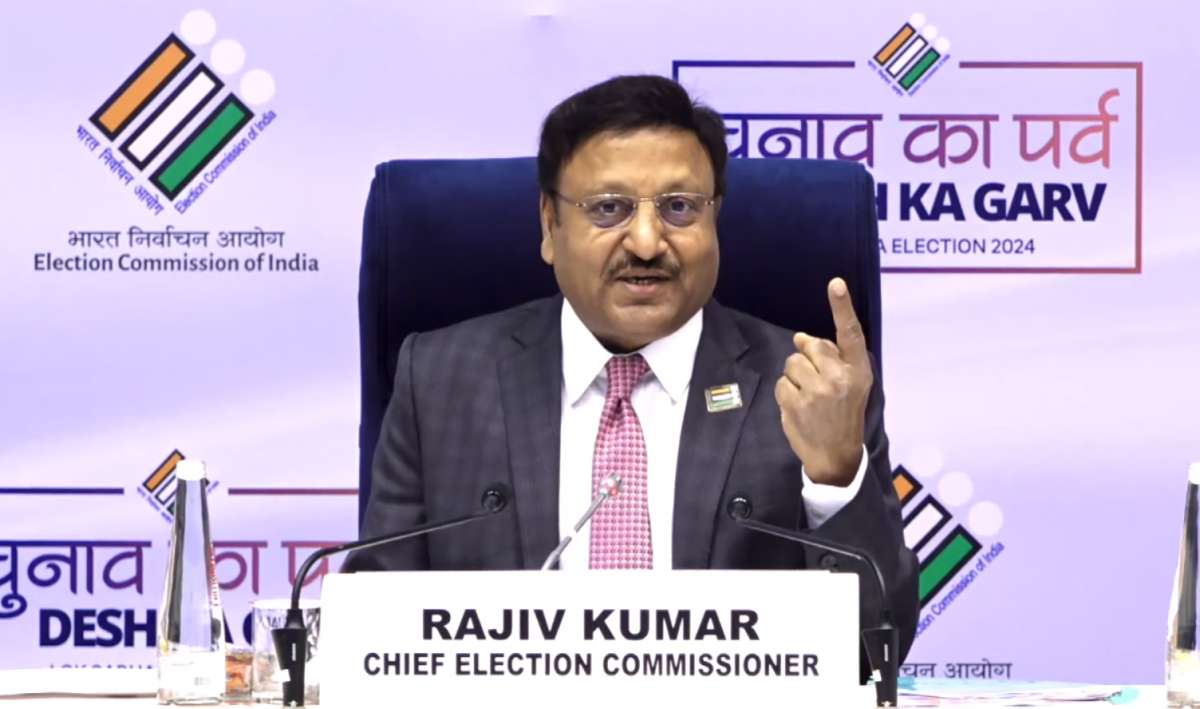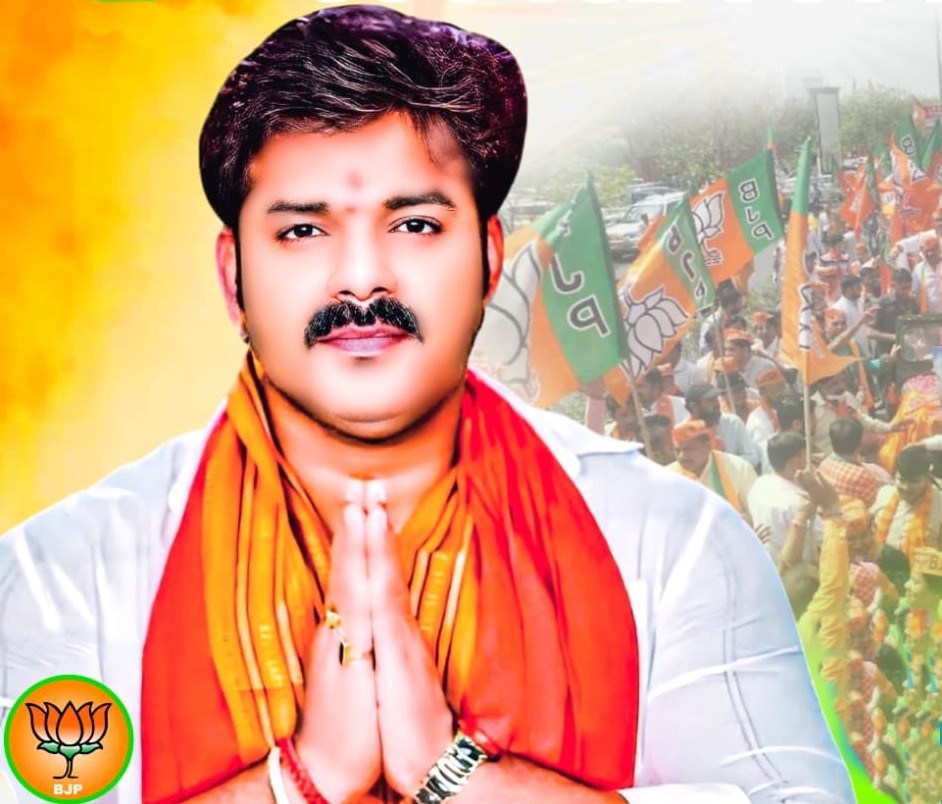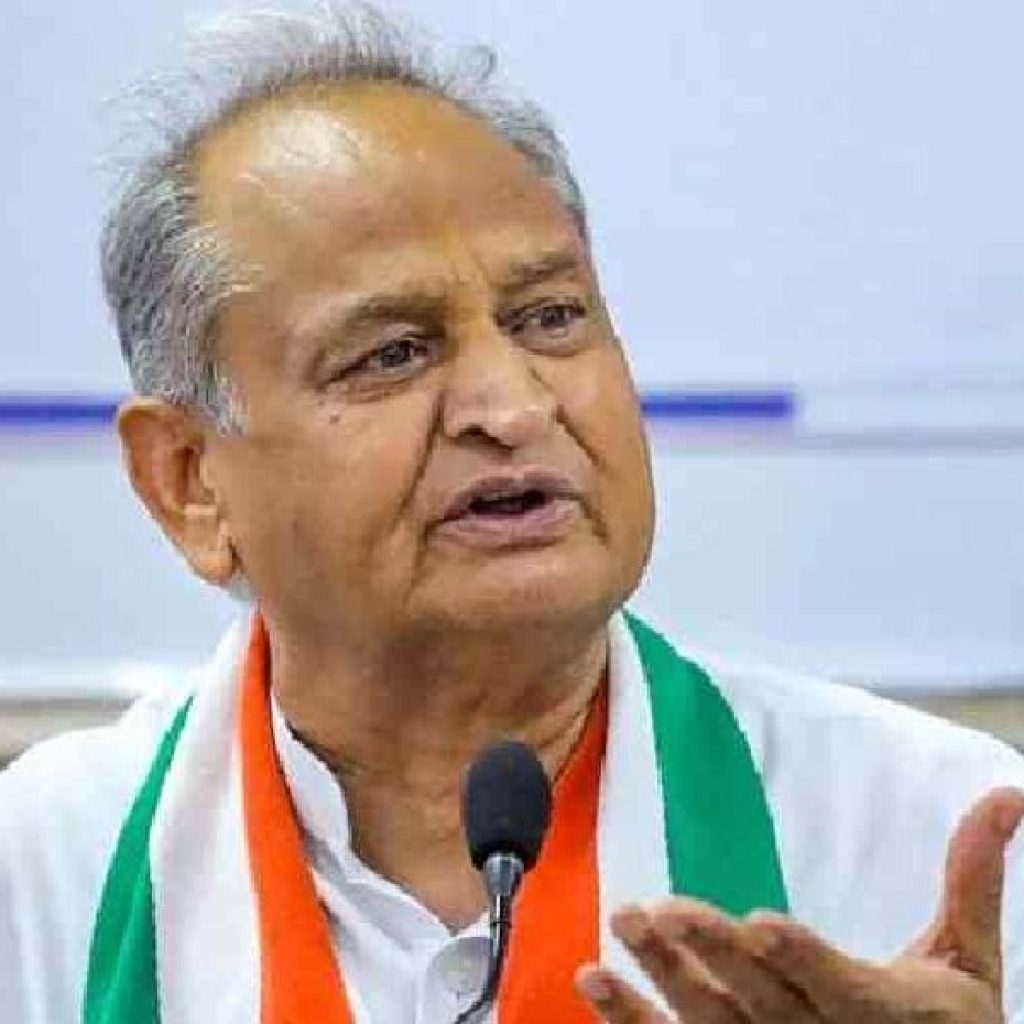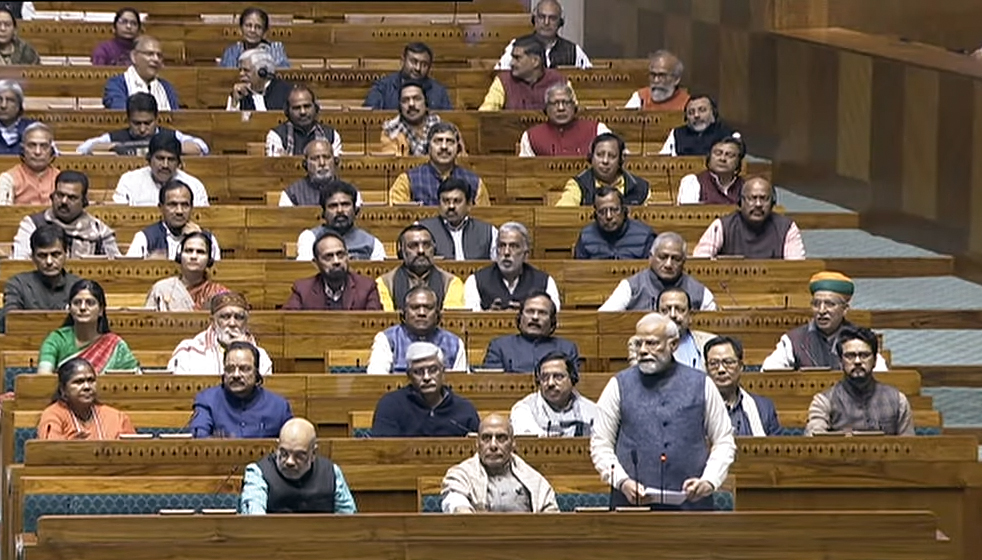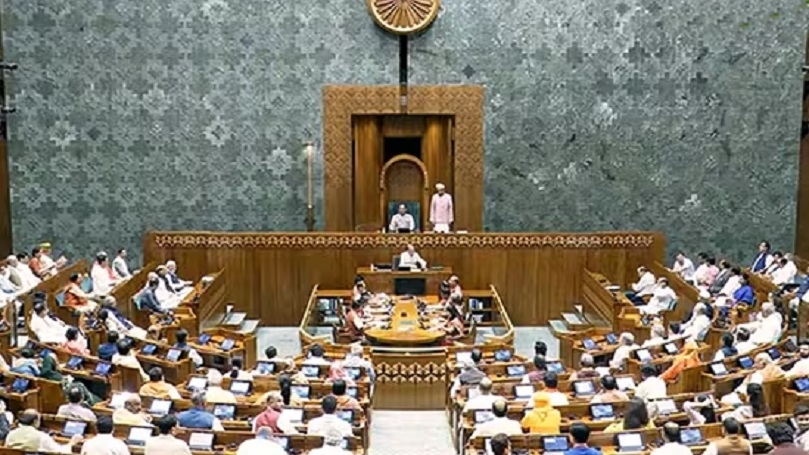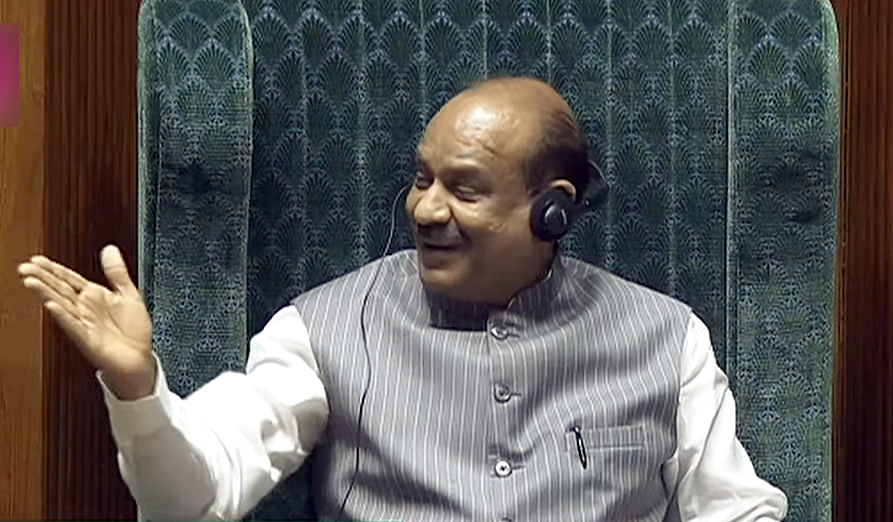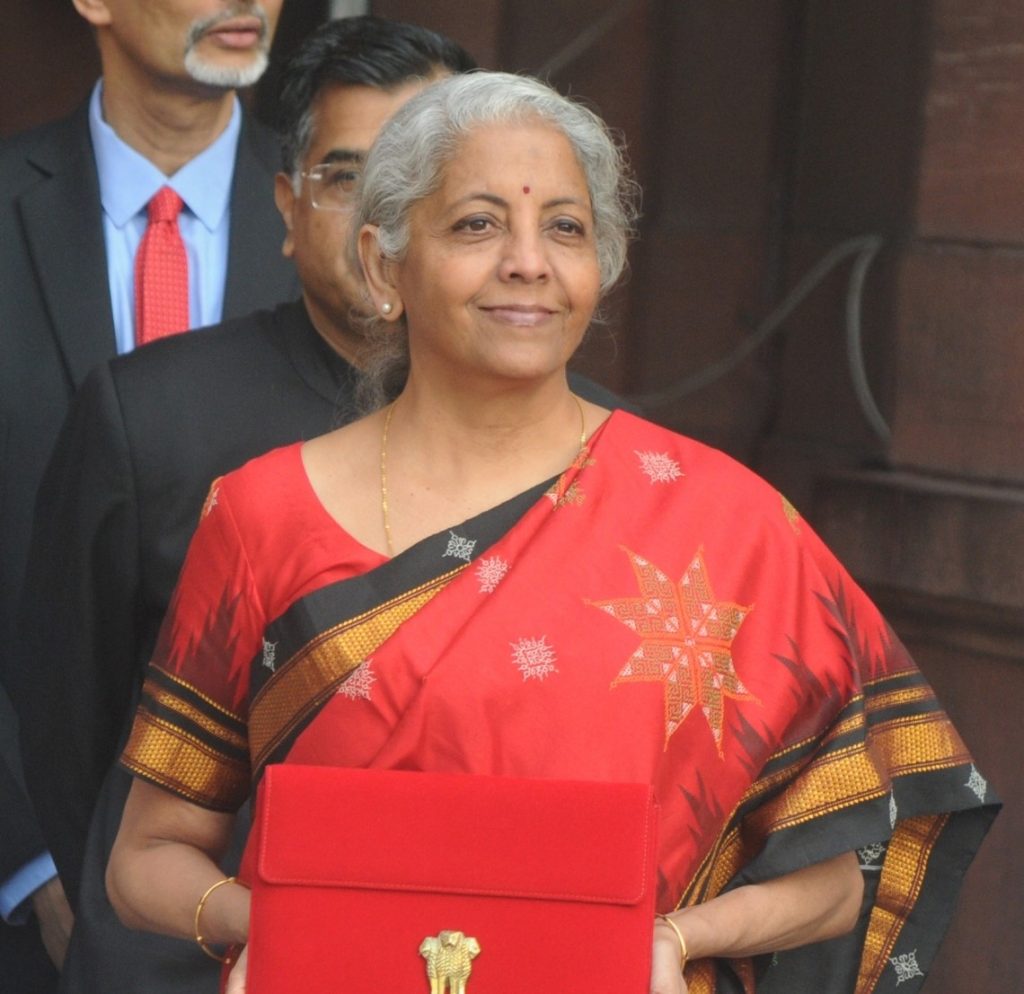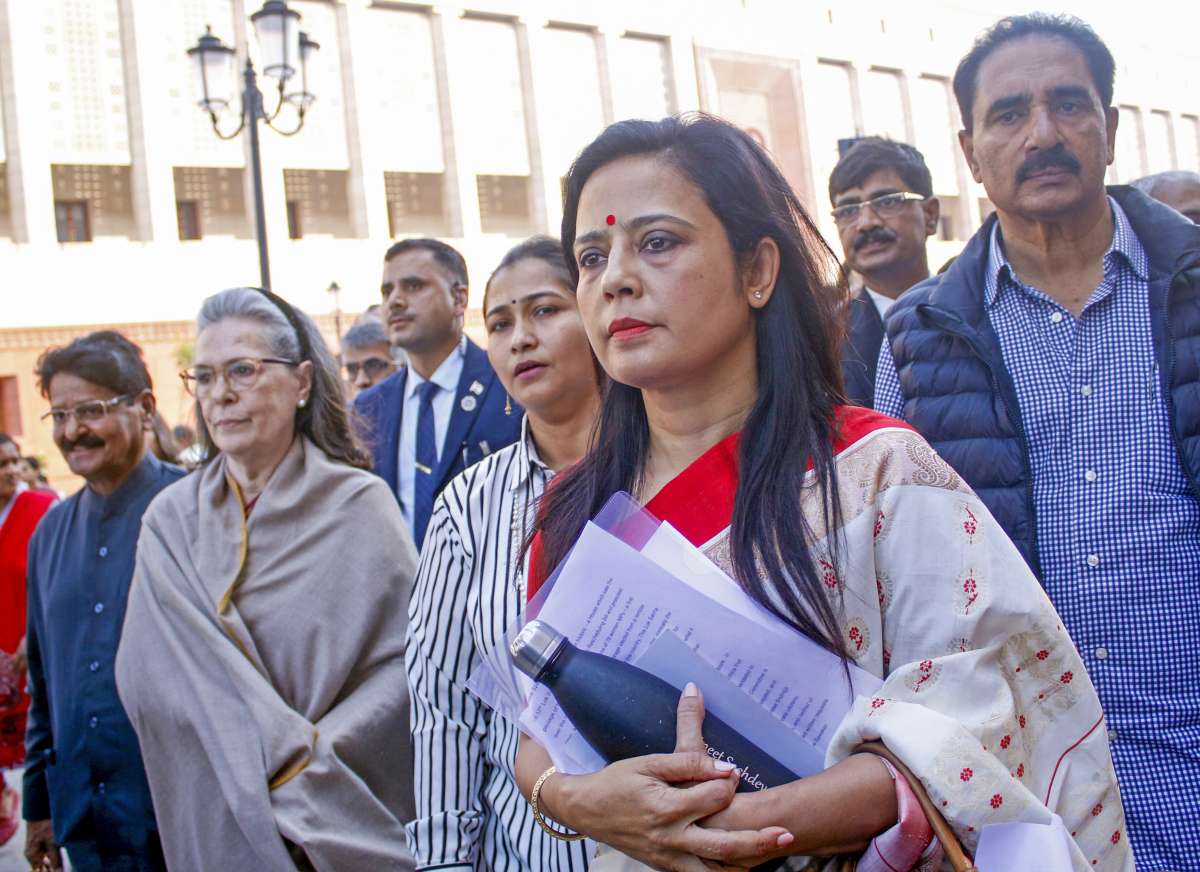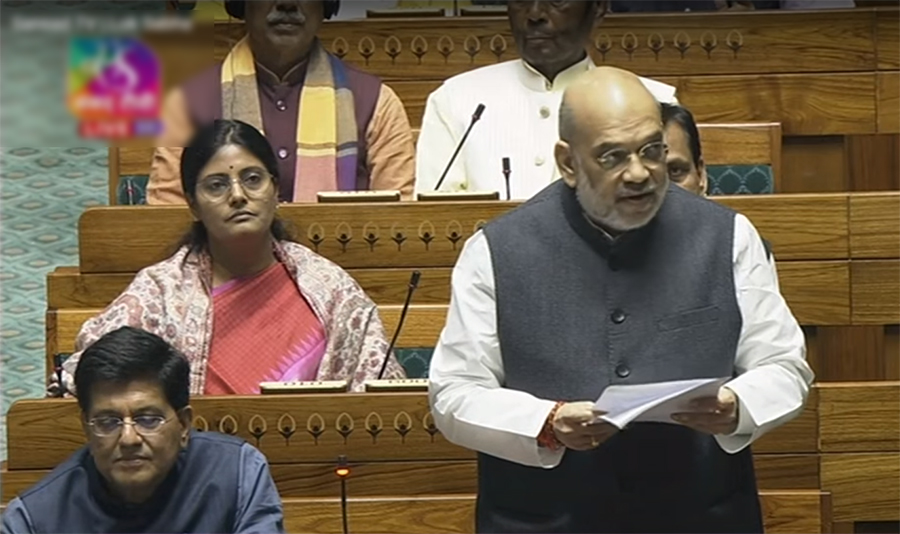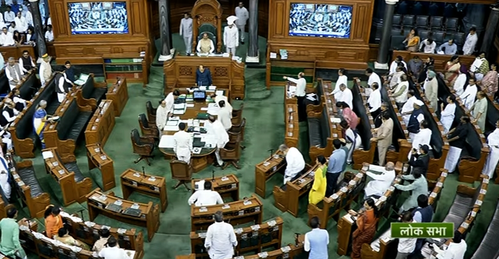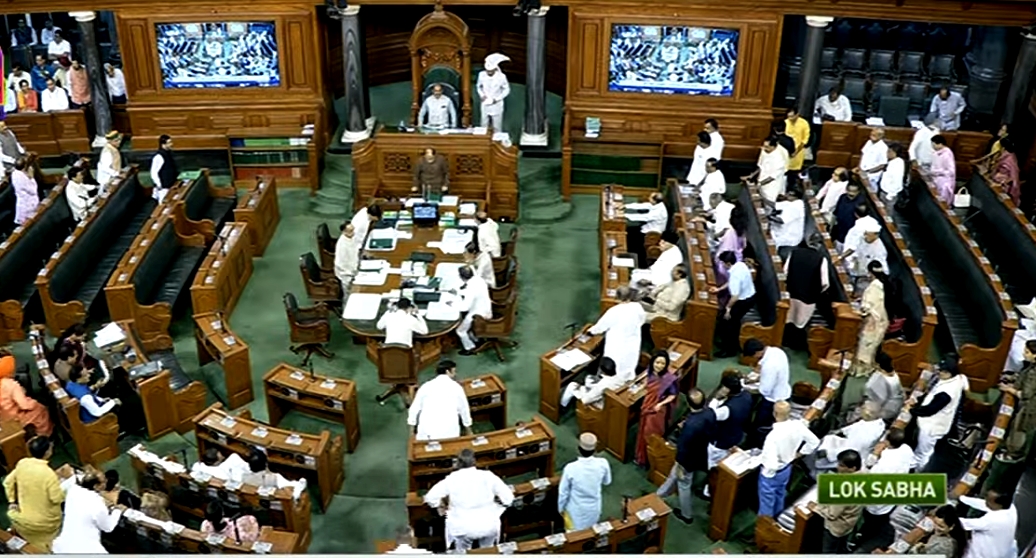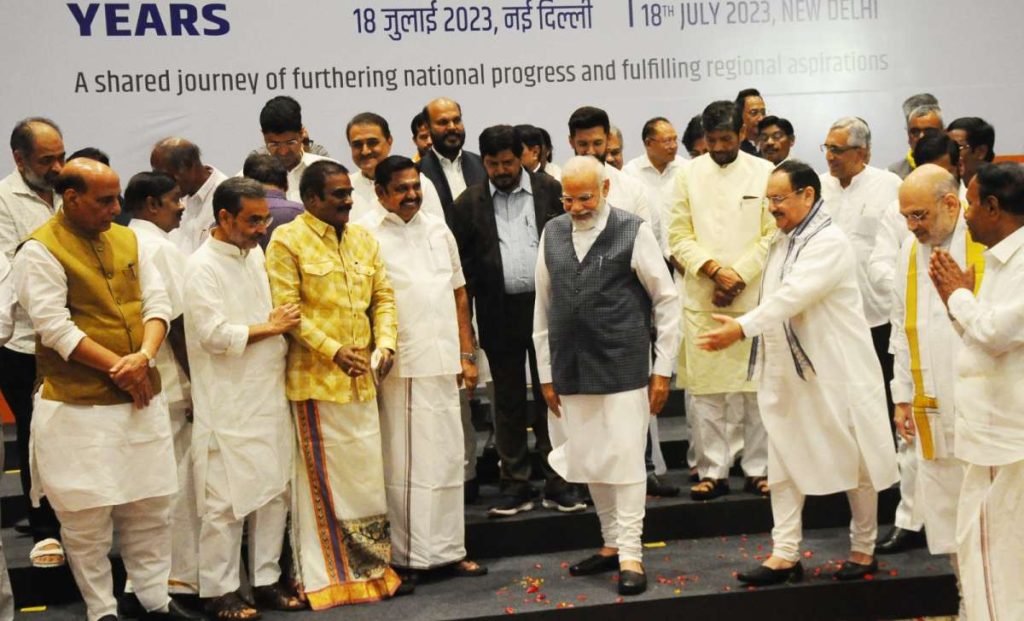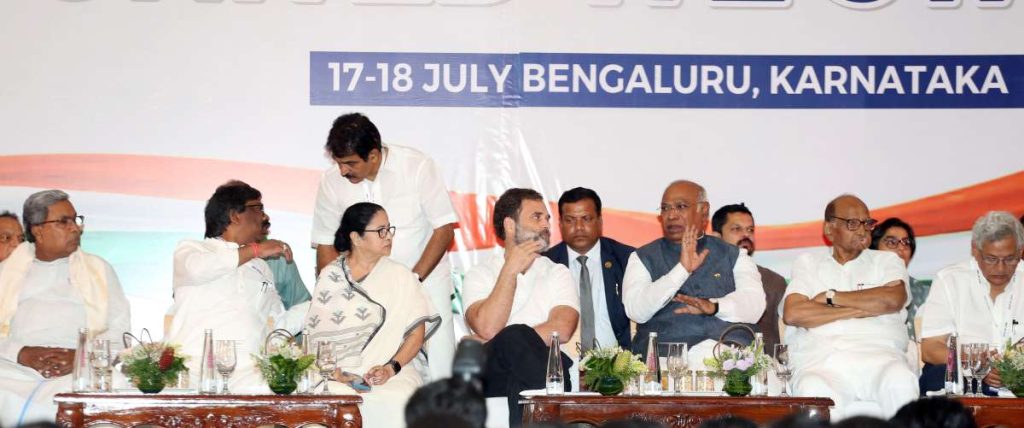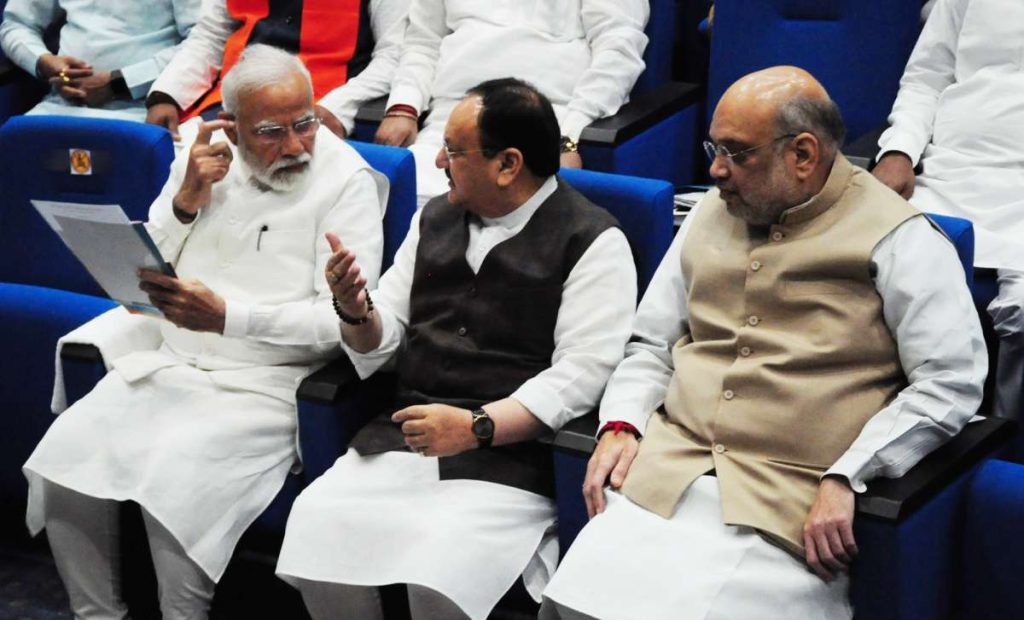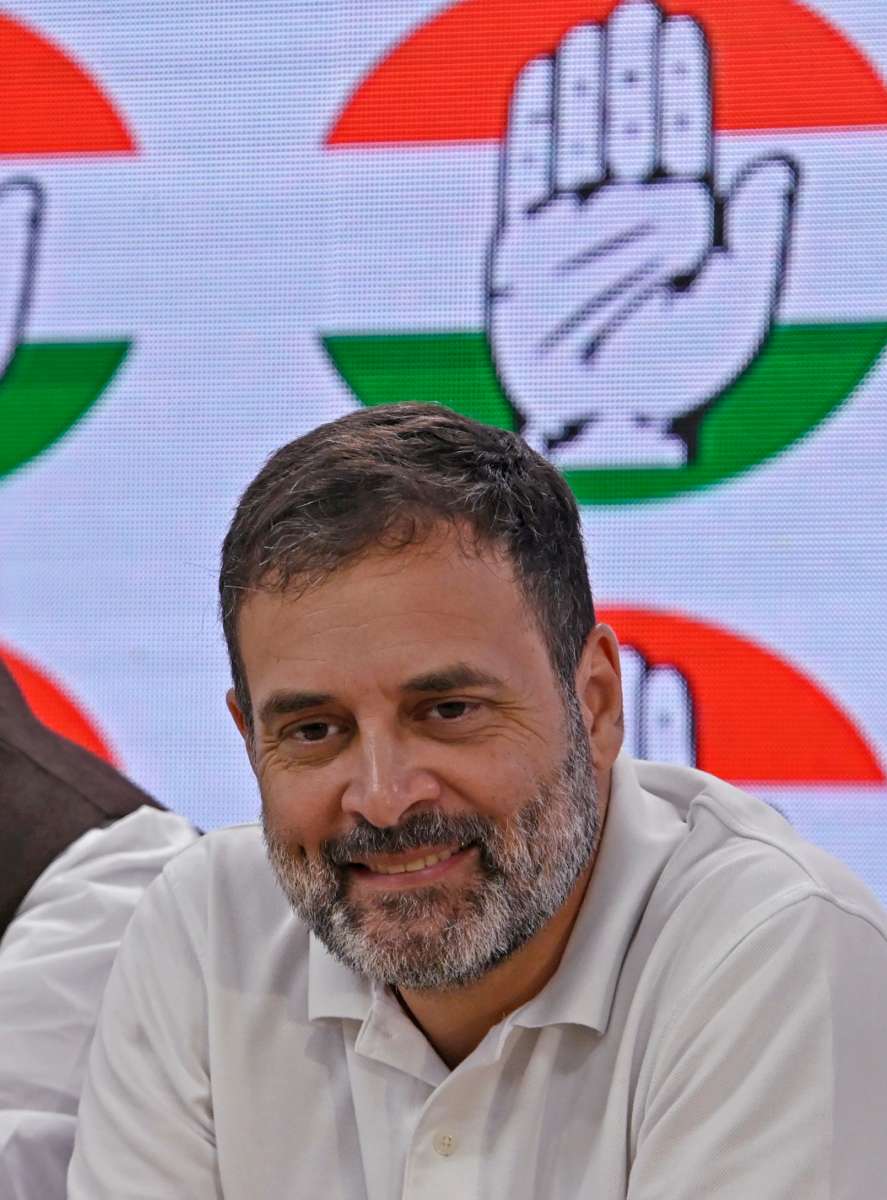The Election Commission of India (ECI) announced the dates for Lok Sabha and four state Assembly elections.
The general election for 543 Lok Sabha seats will be held in seven phases from April 19, Chief Election Commissioner Rajiv Kumar announced on Saturday. The counting will be held on June 4.
The Election Commission of India (ECI) announced the dates for Lok Sabha and four state Assembly elections.
Phase 1 elections will be held on April 19, the last date for making nominations is March 27. Polls will be held in 21 States and Union Territories.
Phase 2 elections will be held from April 26, last date of nominations for candidates in April 4.Second phase will cover 12 States and Union Territories.
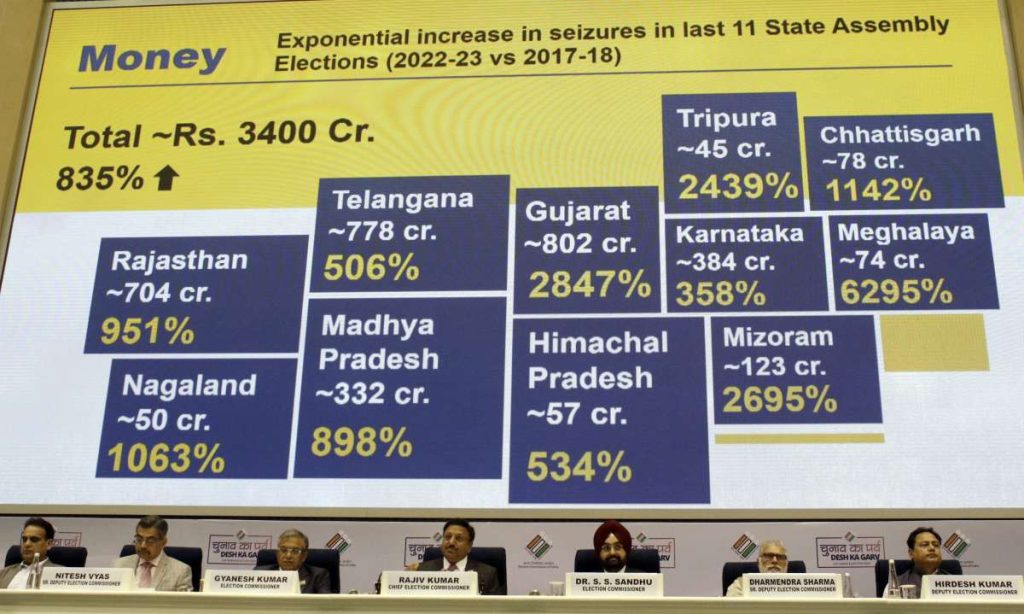
Phase 3 elections will be held on May 7, last date for nominations for candidates is April 19. The third phase will cover 12 States and Union Territories.
Phase 4 elections will be held on May 13, last date for nominations for candidates is April 25.Fourth phase will cover 10 States and Union Territories.
Phase 5 elections will be held on May 20, last date for nominations for candidates in May 3. The fifth phase will cover 8 States and Union Territories.
Phase 6 elections will be held on May 25, the last date for nominations for candidates is May 6. The sixth phase will cover 7 States and Union territories.
Phase 7 elections will be held on June 1, last date for nominations for candidates is May 14. The seventh phase will cover 8 States and Union Territories.
Phase 1 elections will be held in 102 constituencies, a total of 89 constituencies will undergo in phase 2.
In Phase 3, polling will be held in 94 constituencies.
96 constituencies will undergo polling in Phase 4, and 49 constituencies will undergo polling in Phase 5.
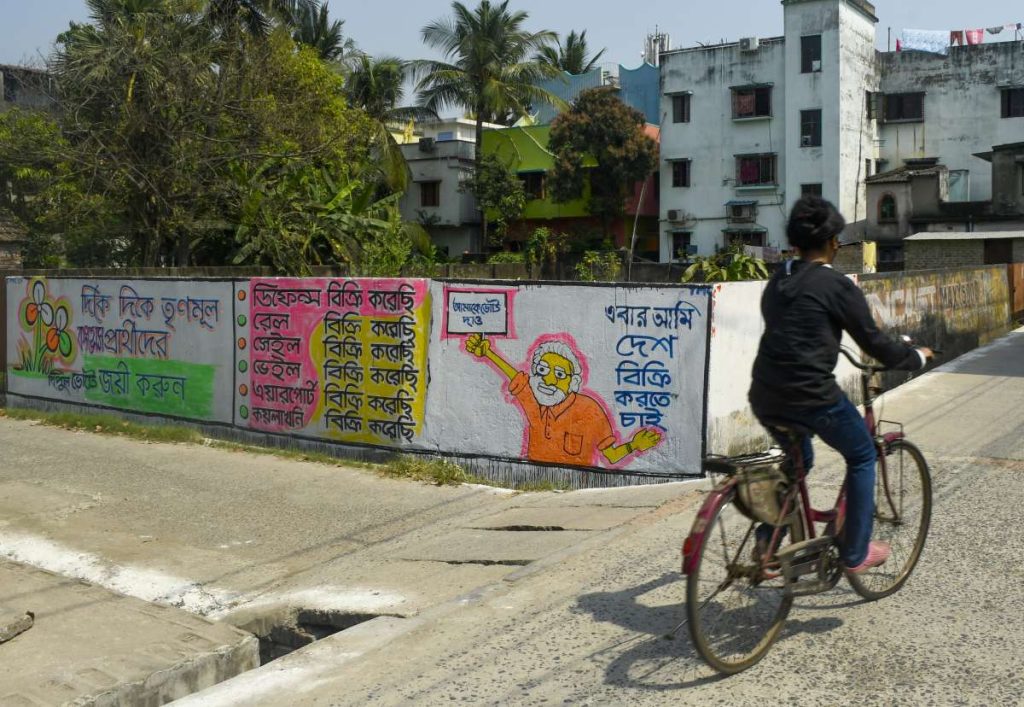
In Phase 6, polls will be held in 57 constituencies and also in Phase 7, 57 constituencies will undergo for polls.
The assembly elections in Andhra Pradesh and Odisha will be held on May 13. while the Assembly polls in Arunachal Pradesh and Sikkim on April 19; Counting of votes will be held Jun 4.
Nearly 97 crore voters will be eligible to vote for 543 Lok Sabha constituencies across the country. With the announcement of dates, the moral code of conduct comes into force immediately.
CEC Rajiv Kumar said that strict directions have been given to District Magistrates and SPs to ensure level playing field. CAPF to be deployed adequately & assisted by Integrated control rooms in each district. Check posts & drones to ensure vigil.
Ensuring voters’ trust is paramount. Violence in elections is unacceptable. Impersonators to be swiftly punished. Transparency in permissions to parties/candidates through SUVIDHA portal.
ECI has offered 27 apps and portals for all stakeholders.
cVigil empowers citizens to report MCC violations and assured action within 100 mts. KYC app facilitates informed voting. A revamped results portal to enhance the experience on results day.
He further mentioned that the poll body is sensitive to environmentally sustainable elections.
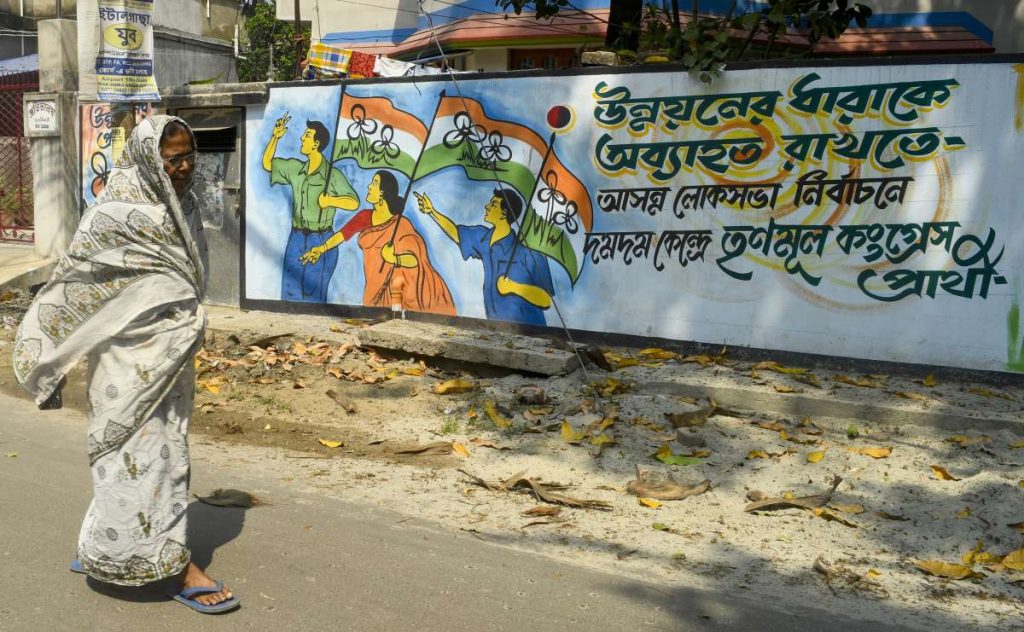
“We are making efforts to minimise single-use plastic and encourage eco-friendly practices in the election process,” he said.
CEC Kumar informed that to curb the flow of illicit money, the poll body has held extensive reviews with enforcement agencies.
“Cash movement worth around Rs 3,400 crore was restricted in the last 11 state assembly elections in Rajasthan, Telangana, Madhya Pradesh, Karnataka, Chhattisgarh, Mizoram, Meghalaya, Nagaland, Himachal Pradesh, Gujarat and Tripura,” CEC Kumar said.
“Measures like ESMs portal, and coordination between agencies resulted in an exponential increase in seizures in the last 11 elections,” he added.
Chief Election Commissioner Rajiv Kumar said that there is no place for bloodbath and violence in the elections.
“From wherever we will receive the information of violence, we will take action against them,” he said.
On the misinformation being spread in the current era, CEC Kumar said, “We have put certain measures in place to ensure misinformation is nipped in the bud. We’re proactive in debunking fake news. Originators of fake news to be dealt with severely as per extant laws.”

“Verify Before You Amplify” is the mantra to combat fake news. Let’s rely on authoritative sources to ensure accurate information prevails. Stay vigilant and help us maintain the integrity of the electoral process,” he added.
Chief Election Commissioner Rajiv Kumar’s mentioned a Shayari advising voters to not forward fake news and unverified information.
“Jhuth ke bazaar mein raunak to bahut hai, Goya bulbule jaisi turant hi fat jati hai..
Pakad bhi loge to kya hasil hoga siwaye dhokhe ke,” he said. (ANI)

